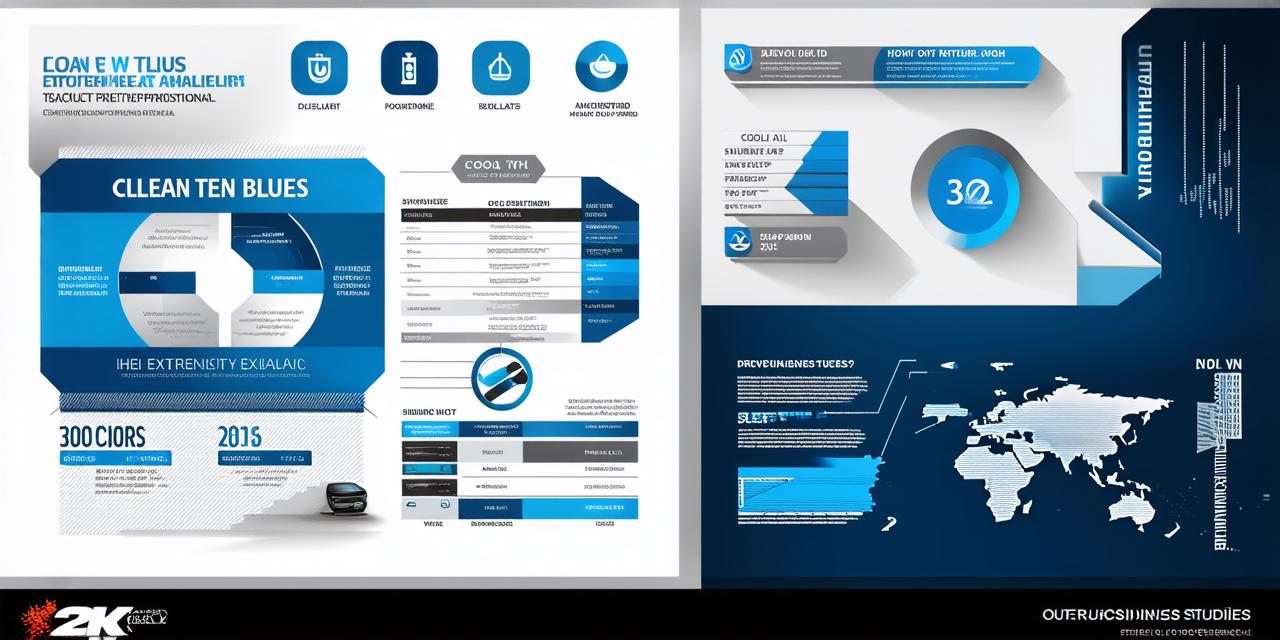What is Outsourcing?
Outsourcing refers to the practice of contracting out certain business functions or tasks to a third-party provider who specializes in that area. This can include anything from accounting and finance to customer service and IT support. The main advantage of outsourcing is that it allows businesses to focus on their core competencies while leaving non-core activities to the experts.

Benefits of Outsourcing
-
Cost Savings: One of the main benefits of outsourcing is cost savings. By contracting out certain tasks, businesses can reduce labor costs and overhead expenses associated with running their own operations. This can free up resources to invest in other areas of the business that are more strategic and aligned with the company’s goals.
-
Expertise: Outsourcing allows businesses to access specialized expertise that may not be available internally. For example, a small business may not have the resources or knowledge to develop an effective marketing strategy. By outsourcing this task to a marketing agency, the business can benefit from the agency’s experience and expertise in developing successful marketing campaigns.
-
Scalability: Outsourcing can also help businesses scale their operations more effectively. For example, during peak seasons or periods of high demand, a business may need to increase production capacity quickly. By outsourcing certain tasks to a third-party provider, the business can quickly ramp up production without having to invest in expensive equipment or hire additional staff.
-
Time Management: Outsourcing can also help businesses manage their time more effectively. By delegating certain tasks to third-party providers, businesses can free up time for more strategic activities and focus on what they do best.
Common Misconceptions about Outsourcing
-
Loss of Control: One common misconception about outsourcing is that it leads to a loss of control over certain aspects of the business. However, this is not necessarily true. Businesses can still maintain oversight and control over their operations by choosing the right provider and establishing clear communication channels.
-
High Costs: Another misconception is that outsourcing is always more expensive than performing tasks in-house. While it is true that there may be additional costs associated with hiring a third-party provider, these costs can often be offset by cost savings in other areas of the business. In addition, many providers offer flexible pricing models and can work with businesses to find the most cost-effective solution.
-
Security Concerns: Some businesses may have concerns about security when outsourcing certain tasks. However, it is important to choose a reputable provider that has experience in handling sensitive data and has implemented appropriate security measures. Businesses can also take steps to protect their own data by using encryption and other security technologies.
Real-Life Examples of Successful Outsourcing Strategies
-
Google: Google is a great example of a company that has successfully outsourced certain tasks. The company has outsourced its manufacturing operations to contract manufacturers in China, which allows them to scale production quickly and cost-effectively. In addition, Google has also outsourced some of its software development tasks to third-party providers in India, which has helped the company access specialized expertise at a lower cost.
-
Amazon: Amazon is another company that has successfully outsourced certain tasks. The company has outsourced its fulfillment operations to contract manufacturers and distribution centers, which allows them to quickly ship products to customers around the world. In addition, Amazon has also outsourced some of its software development tasks to third-party providers in South America, which has helped the company access specialized expertise at a lower cost.
-
IBM: IBM is a great example of a company that has successfully outsourced certain tasks while maintaining control over others. The company has outsourced some of its manufacturing operations to contract manufacturers in China and India, which allows them to scale production quickly and cost-effectively. However, IBM has also kept certain core functions in-house, such as research and development, which is critical to the company’s long-term success.
Conclusion
In conclusion, outsourcing can be a powerful tool for businesses of all sizes. By contracting out certain tasks to third-party providers who specialize in those areas, businesses can free up resources to focus on their core competencies and invest in other areas of the business that are more strategic and aligned with their goals. It is important to choose the right provider and establish clear communication channels to ensure successful outsourcing. By doing so, businesses can achieve cost savings, access specialized expertise, scale their operations more effectively, and manage their time more effectively.
